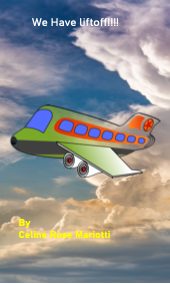by Alaric DeArment
From what I could tell, the accounts of the rally in the newspapers Amadeo tore up and burned were devastating, calling him a petty tyrant and demagogue and comparing him to historical leaders I could not recognize but whom I assumed were comparable to the Neros and Napoleons of my world. I too was denounced, as an interloper and a toady.
Given Amadeo’s kindness toward me, it caused me great consternation to tell him that I found his attacks on the press and heaping the rage of a braying mob on those reporters unsettling and implored him again the next morning to not to repeat what happened for fear of it leading to violence. He said he agreed.
“Do not worry about giving your real opinion,” he assured me, grabbing my shoulders. “Even I do not like, I listen.”
He also agreed when I suggested ending the practice of burning people at the stake. In fact, the very next day, he even said on the radio that he would outlaw capital punishment and have the metal poles used to burn people alive removed nationwide.
We spent the next week traveling around the country, speaking in other cities in order to drum up support for the new government. Again, I would make a short speech about the importance of “freedom” – excising the portion about reporting bringing down governments – while Ginevra or Raffaele would translate.
In the medium-sized industrial city of Sabbioncello, I was disappointed to again see a flaming brazier next to the podium. Amadeo repeated the ripping and burning of newspapers, driving the crowd wild just as he did in Ragusa and scaring local reporters even though they didn’t work for the big city papers. But this time – according to Raffaele – he also told the audience to avoid giving in to hatred and to forgive the journalists, who were only doing their jobs by telling “lies” about him, after which he glanced at me and winked.
“This man,” he boomed, stretching his arm out to gesture toward me, “knows the importance of freedom. He is a member of the once great house of de Proculo, which I am ashamed to say my own family overthrew and drove into exile centuries ago because the de Proculos wanted liberty for our republic.”
I had been applauded in small speeches and panel discussions, but never experienced the love of a large, adoring crowd. It reminded me of the importance of what I was doing and the difference I was making.
And though our days on that trip were busy, this country began to grow on me, and I began to feel proud to call myself a citizen. Espressos and Lavachia and sodas at sidewalk cafes, sumptuous meals in ornate restaurants, the charmingly eroded carvings in the sandstone Renaissance architecture and the flowers thriving in the Mediterranean sun, the baroque splendor of the Rector’s Palace in each city where we spent the night – I felt more at home in the Republic of Stagno than I did in Seattle. Even my father’s most joyous and cheerful moments barely concealed a deep sorrow, and I couldn’t help thinking it was because the beautiful homeland where his ancestors had lived for centuries.
I decided it was for my father that I would help rebuild it, and I began bringing that up in my speeches.
“We are building Stagno into what my grandfather Enzo wanted it to be,” Amadeo told me after I mentioned my father. “You would make your father proud.”
Amadeo had apparently taken my suggestion to focus on the positive to heart, spending most of his speeches in Sabbioncello, Lagosta, Trappano, Iagnina, Porto Gippana and other cities offering promises to clean up the country and improve its society and economy, invariably pointing to some local problem, which always seemed to resonate well. But the cheers from the crowd for those promises weren’t nearly as loud as they were when he promised elections.
While he would point out problems and promise to solve them, he never gave any specifics, speaking instead in vague terms, even when locals would ask him what he planned to do.
But that was surely because he had no specific plans yet and would consult with his ministers to draw them up. After all, Raffaele carefully took notes as people spoke and thus clearly took their concerns seriously. And besides, even the vague generalities in which Amadeo spoke sent the crowd into the same furious applause I saw in Ragusa. No matter what he said or did, I never saw them looking bored.
During the rally in Lesina, Amadeo described all the public works he would create – fixing up the city’s dilapidated train station, repaving its broken roads and improving the cleanliness of its water, all of which would create jobs and encourage growth. I turned to the Minister of Commerce, Marco Saraca, who was clapping with a big grin on his face. “You’re going to have a lot of work pretty soon, right?”
His claps grew softer and he turned to me, laughing through his grin. “Don’t listen. Just keep clapping. What he says is for the people.”
How odd to say something so obvious, I thought. Of course it was for the people. We were working to rebuild the nation.
As I lay in bed in the Rector’s Palace of Lesina the night before we returned to Ragusa, well past 1 a.m., I heard from the master bedroom next door the sound of Amadeo chanting again, followed by the crackling of a fire and something being cast onto it.
![]()






